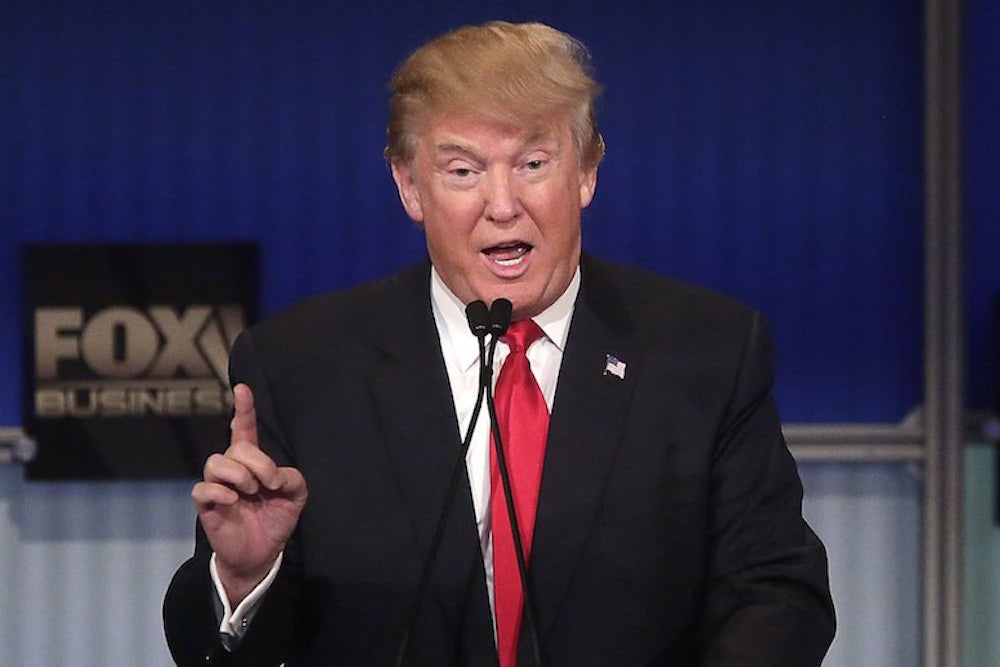Even if Donald Trump doesn’t win the Republican primary, he’s already left an indelible mark on the contest by making the issue of immigration the flash point for arguments within the GOP. Immigration was an issue that establishment Republicans wanted to keep under wraps, since it divided the business elite of the party (who favor open immigration) and the much more anti-immigrant base. But Trump has made it impossible to keep immigration on the back-burner, with his fiery warnings about Mexican drug dealers and rapists as well as his calls to build a giant wall.
The most intense moments in the fourth Republican debate all concerned immigration. The more moderate professional politicians, notably John Kasich and Jeb Bush, were much more forthright than before in saying that Trump’s call to deport 11 million undocumented immigrants is inhumane. Conversely, Trump remained adamant, citing Dwight Eisenhower’s policy in the 1950s that led to the deportation of 1.3 million Mexicans.
Trump was careful not to give the name of Eisenhower’s policy: Operation Wetback. Instead he tried to make mass deportation seem almost folksy, unfolding a narrative of how Eisenhower tried at first to deport the immigrants to a place near the border, but they came back. Then Eisenhower allegedly tried, again, but the immigrants came back. Finally Eisenhower sent the immigrants deep into Mexico and they didn’t return. Trump thus turned a horrific episode in American history into kind of fairytale, a mix of the Little Train That Could and the Three Little Pigs.
“We are a country of laws,” Trump insisted.”We need borders. We will have a wall. The wall will be built. The wall will be successful. And if you don’t think walls work, all you have to do is ask Israel.”
As voiced by Trump, deportation was a matter not just of economics or policy but of national self-definition. Only by kicking out the undocumented, he seemed to suggest, could the United States prove it was a real country in control of its destiny. Once national self-assertion was over, some of the deported could return legally, he added.
Intellectually this seemed dubious: Why deport people only to readmit them? Why not just process them in the United States? But his arguments seemed to resonate with many in the audience.
Texas Senator Ted Cruz, who often seems to be auditioning to be a slicker and more politically polished Donald Trump, echoed these sentiments, making an aggressive argument that undocumented workers were driving down wages. Cruz and Trump both earned loud applause.
Standing against the open xenophobia of Trump and Cruz, Kasich and Bush articulated the idea that mass deportation wouldn’t work and that taking people, including young children, out of their neighbourhoods was inhumane. Bush further hinted that it was bad politics. While Kasich and Bush did earn some applause for making a case for a more humane immigration policy, they clearly didn't have the audience on their side.
Will the GOP listen to Trump and Cruz or will they follow Bush and Kasich? That seems to be the key issue in the Republican primaries, a question that is crucial not just in determining the party's presidential candidate, but the identity of the GOP. It’s also a question pregnant with meaning for the identity of the United States itself.
